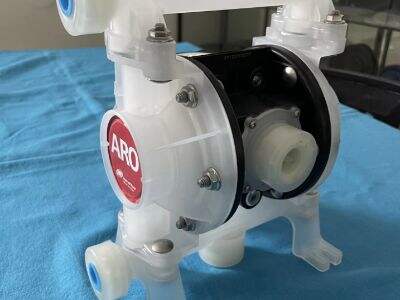ယခုအခါတွင် လူများသည် ဒီအားဖြင့် အရည်များကို များကို စက်မှုလုပ်ငန်းများတွင် အသုံးပြုသည့် အမျိုးအစားများကို နှိုင်းယှဉ်ကြည့်ပါက မည်သည့်အမျိုးအစားက ပိုမိုကောင်းမွန်သနည်း။ ပုံမှန်အားဖြင့် အမျိုးအစားများစွာရှိပြီး တစ်ခုချင်းစီတွင် အထူးသတ်မှတ်ထားသည့် အင်္ဂါရပ်များနှင့် အားသာချက်များ ရှိပါသည်။
အမှုန့်ဖျော်ပိုက်နှင့် စက်မှုလုပ်ငန်းများတွင် အသုံးပြုသည့် ပိုက်များအကြောင်း #1 ဇူလိုင်လ ၃၁ ရက်နေ့ ၂၀၂၀ ခုနှစ်တွင် မှတ်ချက်များ - အမှုန့်ဖျော်ပိုက်နှင့် စက်မှုလုပ်ငန်းများတွင် အသုံးပြုသည့် ပိုက်များအကြောင်း အမျိုးအစားများကို စဉ်းစားရမည်ဖြစ်ပါသည်။
အရည်ကို ပိုက်ဆက်ရန် အသုံးပြုသည့် ဒိုင်ဖရမ်ကဲ့သို့ လျော့ပါးသော အစိတ်အပိုင်းများရှိပါသည်။ ပုံမှန်ပိုက်အမျိုးအစားများကို ပိတ်ဆို့စေနိုင်သည့် အမှုန့်အမှော်များနှင့် ကပ်ရောနေသော အရည်များကို ပိုက်ဆက်ရန်အတွက်လည်း အထူးသင့်လျော်ပါသည်။ အလယ်စွန်ပိုက်များသည် အရည်ကို တွန်းလှန်ပေးသည့် အလည်လှည့်ပါတ်များကို စတင်ပါသည်။ အရှိန်အဟုန်များကို သယ်ယူပို့ဆောင်ရာတွင် အလယ်စွန်ပိုက်များကို မကြာခဏ အားကိုးရပါသည်။ သို့ရာတွင် ပိုက်သည် ထိုသို့လုပ်ဆောင်နိုင်ပါက အရည်များကိုလည်း အသုံးပြုနိုင်ပါသည်။
အလယ်စွန်နှင့် ဒိုင်ဖရမ်ပိုက်များကို ခွဲခြားသတ်မှတ်ခြင်း
ဒိုင်ဖရမ်ပိုက်များသည် အရည်များနှင့်အတူ ပိုက်ကို အသုံးပြုနေပါက သင့်တော်ပါသည်။ အရင်ဆုံး ရေကို ရှာဖွေစရာမလိုဘဲ ချက်ချင်းပိုက်ဆက်နိုင်ပါသည်။ သူတို့၏ လည်ပတ်သော အစိတ်အပိုင်းများသည် ထိုသို့မဟုတ်သော အရည်များအတွက် ဒီဇိုင်းထုတ်ထားခြင်းမရှိသောကြောင့် အလယ်စွန်ပိုက်များသည် အရည်များကို ပိုက်ဆက်ရာတွင် ခက်ခဲနိုင်ပါသည်။ သို့ရာတွင် အချိန်တိုအတွင်း အရည်ပမာဏများစွာကို ရွှေ့ပြောင်းရာတွင် ပိုမိုကောင်းမွန်စွာ လုပ်ဆောင်ပေးနိုင်ပါသည်။
ထူထပ်သော အတွဲအစပ်များအတွက် မှန်ကန်သော ပိုက်
အောက်စီနှစ်ပါဝင်သော ပိုက်ကွန်များအတွက် ပန့်ကိုရွေးချယ်သည့်အခါတွင် အောက်စီ၏ အနှစ်သက်ရာနှုန်း၊ ပန့်ကို လည်ပတ်နိုင်သောနှုန်းနှင့် ထိန်းချုပ်နိုင်သောဖိအားတို့ကို စဉ်းစားရပါမည်။ 10,000 cP အထိရှိသော အနှစ်များအတွက် ဒီပြားများသည် အကောင်းဆုံးဖြစ်ပြီး ပိုမိုပေါ့ပါးသောအရည်များအတွက် centrifugal pump သင့်တော်ပါသည်။ အောက်စီပမာဏများစွာကို သယ်ယူပို့ဆောင်ရာတွင် စင်တြစ်ဖူဂယ်ပန့်ကို သုံးနိုင်ပါသည်။ သို့ရာတွင် အရည်များစွာရှိပါက (ဥပမာ- အဆိပ်သင့်ပစ္စည်းများ) ဒီပြားပန့်က ပိုမိုထိရောက်ပါသည်။
ဒီပြားနှင့် စင်တြစ်ဖူဂယ်ပန့်များ၏ အားသာချက်နှင့် အားနည်းချက်များ
ဒီပြားပန့်များသည် အဆိပ်သင့်ပစ္စည်းများပါဝင်သော အရည်များကို ကိုင်တွယ်နိုင်သောကြောင့် အသုံးပြုမှုတွင် အနည်းငယ်ကျယ်ပြန့်ပါသည်။ ထို့ပြင် အချိန်ကြာမြင့်စွာ ခံနိုင်ပြီး ထိန်းသိမ်းမှုများစွာမလိုအပ်ပါ။ သို့ရာတွင် ပိုမိုကုန်ကျစရိတ်များပြီး ပမာဏများစွာကို ပိုမိုမြန်ဆန်စွာ ပို့ဆောင်နိုင်ခြင်းမရှိပေ လေဖိအားဖြင့် လည်ပတ်သော စင်တြစ်ပီတယ်ပန့် စင်တြစ်ဖူဂယ်ပန့်များသည် အရည်များကို လည်ပတ်ခြင်းဖြင့် တွန်းလှန်သောကြောင့် ပိုမိုစျေးပေပြီး အရည်များကို ပိုမိုမြန်ဆန်စွာ ရွှေ့ပြောင်းပေးနိုင်သော်လည်း အရည်များကို ကိုင်တွယ်ရာတွင် ပိုမိုခက်ခဲပြီး အလွယ်တကူပိတ်ဆို့နိုင်ပါသည်။
အမျိုးအစားကွဲပြားသော အရည်များအတွက် ပန့်ကိုရွေးချယ်ရာတွင် စဉ်းစားရမည့်အချက်များ
Diaphragm pump နှင့် centrifugal pump အရည်များအတွက် ပန့်ကိုရွေးချယ်သည့်အခါတွင် အရည်၏ ထူထပ်မှု၊ အမှုန်များပါဝင်မှု၊ အရည်ကိုရွှေ့ပြောင်းနိုင်သည့်အမြန်နှုန်း၊ အရည်ကိုရွှေ့ပြောင်းရန်လိုအပ်သောဖိအားကိုဆုံးဖြတ်ပါ။ အလွန်ထူထပ်သောအရည်ကို အမှုန်များနှင့်တစ်ပါတည်း ပို့ဆောင်နေပါက diaphragm pump ကိုရွေးချယ်သင့်ပါသည်။ အလွန်ထူထပ်သောအရည်ပမာဏများကို အချိန်တိုအတွင်း ရွှေ့ပြောင်းရန်လိုအပ်ပါက centrifugal pump သည် ပိုမိုကောင်းမွန်သောရွေးချယ်မှုဖြစ်နိုင်ပါသည်။

 EN
EN
 AR
AR
 HR
HR
 CS
CS
 DA
DA
 NL
NL
 FI
FI
 DE
DE
 EL
EL
 HI
HI
 IT
IT
 KO
KO
 PL
PL
 PT
PT
 RO
RO
 RU
RU
 ES
ES
 SV
SV
 TL
TL
 ID
ID
 SR
SR
 UK
UK
 VI
VI
 HU
HU
 TH
TH
 TR
TR
 AF
AF
 MS
MS
 GA
GA
 HY
HY
 AZ
AZ
 KA
KA
 BN
BN
 LA
LA
 MN
MN
 NE
NE
 KK
KK
 UZ
UZ
 KY
KY
 MY
MY






